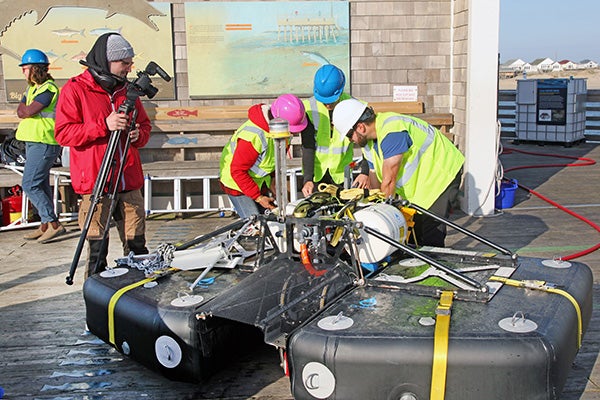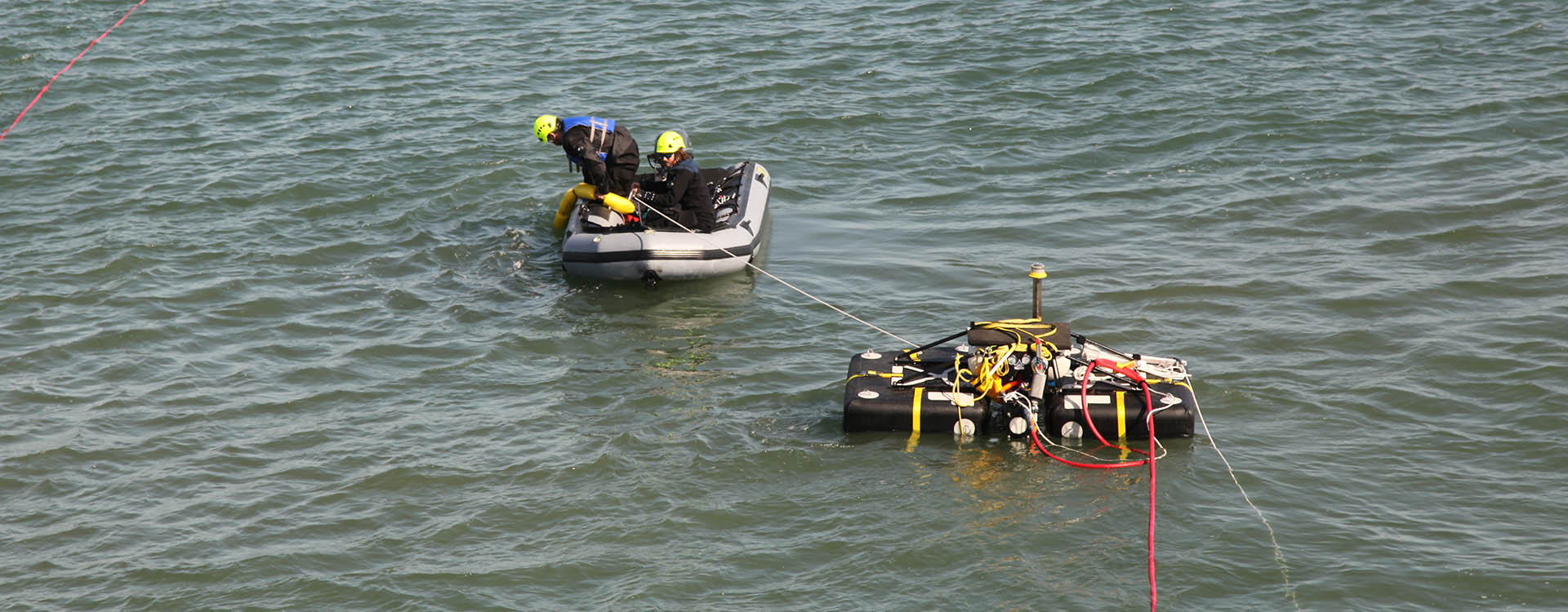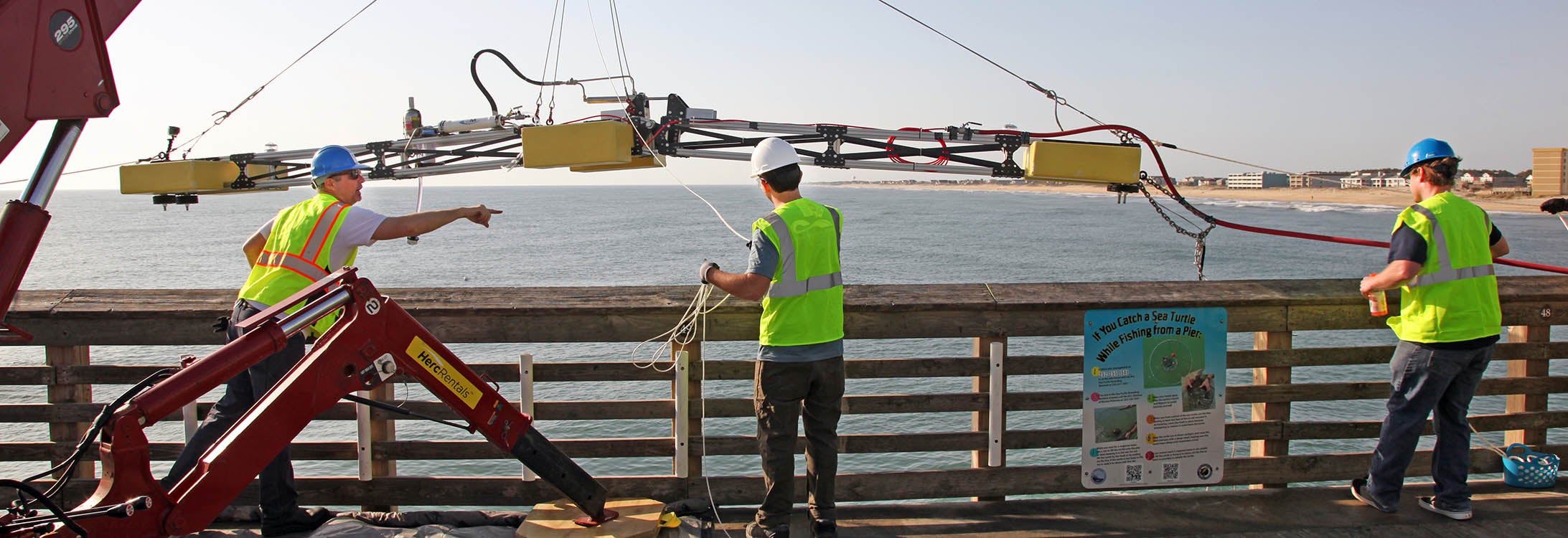DESALINATION DEPLOYMENT
Oneka Snowflake wins Waves to Water competition
All four devices entered in the U.S. Department of Energy’s (DOE’s) Waves to Water Prize DRINK Finale, hosted by East Carolina University’s Coastal Studies Institute, were successfully and safely deployed April 3 at Jennette’s Pier on the Outer Banks. Within hours of being in the ocean, each device produced desalinated water.
The four systems are some of the first wave-powered desalination devices to be deployed. Marine renewable energy is in its infancy compared to other forms of renewable energy, like wind and solar. In early stages of research and development, there is still much to be learned, especially when it comes to deploying renewable energy technologies in the ocean.
Plot twist
As any resident of the Outer Banks knows, the weather conditions in coastal North Carolina are constantly changing and often unpredictable.

Members of Team Oneka prep their device for deployment.
The night of April 3 and into the early morning of April 4 were no exception.
The wind speed at Jennette’s Pier exceeded 30 knots (about 35 mph), resulting in a chaotic seas. As a result, all four devices broke free from their anchor sites during the night, but all were located. Two of the devices were recovered from land, and two were recovered from the water as soon as conditions were safe for a retrieval team to do so.
Extreme environments
Working in extreme environments can be a very rewarding process, but working on and in the water, especially the ocean, is challenging. The unpredictability of nature is always a factor, and safety is the highest priority for all agencies involved in the Waves to Water Prize.
The Department of Energy’s Waves to Water Prize is aware of and prepared for the risks associated with deploying devices in the ocean. In fact, the system constraints under variable weather conditions are often a reality in early-stage research and development, which is why DOE’s Water Power Technologies Office (WPTO) prioritizes the funding of this critical stage research.
What’s next?
The Coastal Studies Institute, Jennette’s Pier and Waves to Water Prize officials worked with the teams to determine next steps for the competition. Ultimately the contest concluded, and the Waves to Water Prize administration team assessed device performance and awarded competitors accordingly. Once minor repairs are made, each of the teams will have an opportunity to individually test their devices again in North Carolina.
The Oneka Snowflake device took home the $500,000 grand prize, and the team received an additional $125,000 for producing the most water with its device.
Team WATER BROS, whose members hail from UNC-Charlotte, received $125,000 for delivering the lightest device.
A total of $125,000 was disbursed among the four teams for simplest assembly. The amount awarded to each team, based on the time taken to assemble their devices, was:
- Oneka: $80,000
- Mark Zero Prototypes, LLC: $20,000
- WATER BROS: $17,000
- Project 816: $9,000
Finally, $125,000 was distributed among the teams based on the ease of deployment and retrieval for each device:
- Mark Zero Prototypes LLC: $38,000
- WATER BROS: $36,000
- Project 816: $26,000
- Oneka: $24,000
While the devices were not deployed for the intended five-day window, the test results will help WPTO, the National Renewable Energy Lab and the Coastal Studies Institute identify future research opportunities for marine renewable energy.
The Waves to Water Prize was a five-stage competition that offered up to $3.3 million in prizes, with the goal of demonstrating small, modular, cost-competitive desalination systems that use the power of ocean waves to provide clean drinking water for disaster recovery and for remote and coastal communities.

The Oneka Snowflake device produced the most water and earned its team the grand prize.
Related
Test Run
